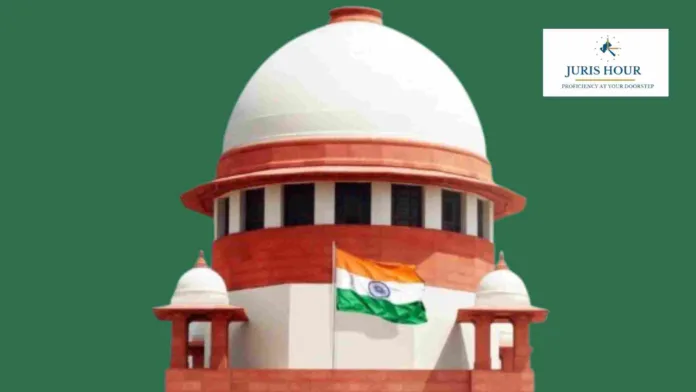The Supreme Court has ruled that there is no difference between suing a proprietorship in its trade name and suing the proprietor personally, as the two are legally inseparable.
A Bench of Justice Vikram Nath and Justice Sandeep Mehta overturned an Andhra Pradesh High Court order which had held that a suit against a proprietorship must be maintained only in the firm’s trade name and not in the proprietor’s name. The apex court observed:
“Whether a proprietorship concern is sued in its name or through its proprietor is one and the same thing, as a proprietorship has no independent legal existence apart from its owner.”
The ruling came in a dispute concerning eviction proceedings initiated by landlords against “Aditya Motors,” a sole proprietorship run by one Prasad. After the lease expired and the tenant refused to vacate, the landlords filed an eviction suit naming “Aditya Motors” as the defendant. Later, they amended the plaint to substitute the proprietor, Prasad, as the defendant.
Prasad contested the amendment, seeking rejection of the plaint under Order VII Rule 11 of the Code of Civil Procedure (CPC). He argued that once “Aditya Motors” was removed from the plaint, the cause of action ceased to exist. While the trial court rejected his plea, the High Court accepted it, ruling that under Order XXX Rule 10 CPC, the suit had to be maintained against the trade name of the proprietorship.
The Supreme Court disagreed with the High Court’s interpretation, holding that such a hyper-technical view ignored the realities of a proprietorship’s legal nature.
Justice Vikram Nath, writing for the Bench, stated that Order XXX Rule 10 CPC gives the option of suing a proprietorship in its trade name but does not mandate it. Since a proprietorship can only be represented and defended by its proprietor, impleading the proprietor personally adequately safeguards the firm’s interests.
“Once the proprietor has been impleaded as a party representing the proprietorship, no prejudice is caused. The cause of action arose against the proprietor, who alone signed the lease deed. No third party’s interest is affected,” the court said.
The judges further held that the High Court erred in treating the amendment as extinguishing the claim. Since the proprietorship and proprietor are legally identical, the suit could proceed against the proprietor in his personal capacity.
Allowing the landlords’ appeal, the Supreme Court restored the trial court’s order and reiterated that a proprietorship concern has no separate legal personality apart from its owner.
Case Details
Case Title: Dogiparthi Venkata Satish And Anr. Versus Pilla Durga Prasad & Ors.
Case No.: SLP(C) NO.25938 OF 2023
Date: AUGUST 26, 2025
Read More: Jharkhand High Court Grants Bail to Trader Accused in Rs. 27.5 Crore GST Evasion Case

